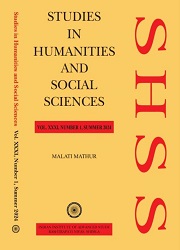Gandhian Thoughts in Hijam Anganghal’s novel Jahera
Keywords:
Anganghal,, Brahma Sabha,, Gandhian,, Mangba- Shengba,, Jahera, Non ViolenceAbstract
Hijam Anganghal’s novel Jahera (published in the 1930s), captures a fissured and discriminatory society in Manipur during the early decades of the twentieth century. Mangba-shengba, which implies impure-pure or unclean-clean in everyday practice, was akin to untouchability. The novel focuses on the male protagonist Kunjabihari or Kunjo’s ill-fated love story with the eponymous female protagonist, both of whom question the deep-rooted socio- religious division and injustices. The paper explores Kunjo’s queries and attempts to redress thedivisiveness causedby mangba-shengba, its legimisation under the ruling King’s organisation Brahma Sabha, and their stringent hold on the people. The novel depicts the tension between the Meitei Hindus and Meitei Pangals (Muslims), and exposes the bigoted structure within which the two lovers are caught. The paper analyses the way Anganghal critiques this structure through Gandhian views which are founded upon equality, dialogue, non-violence, social-reform, renunciation, vegetarianism, and unity.



